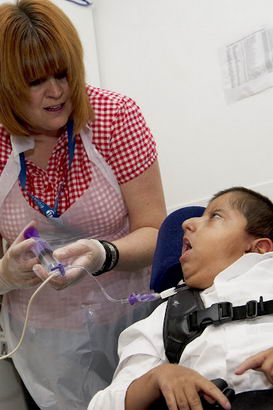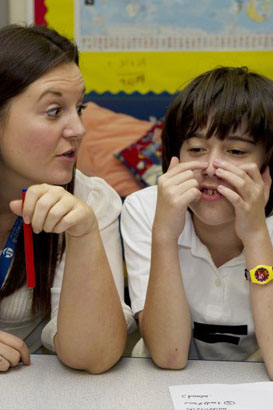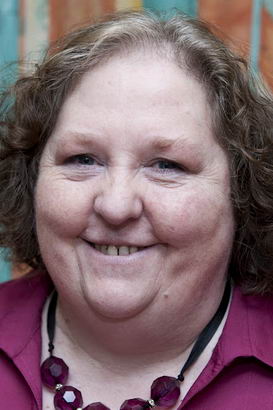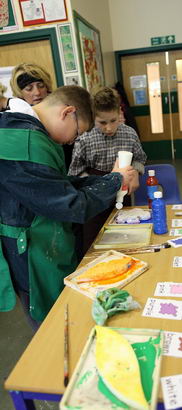with parents

A key to effective identification of a child's problems and providing for them appropriately lies in the school's relationships
with parents.
Good practice entails:
- Regular home visits by teachers and other support staff;
- Training for parents in developing healthy minds;
- Parental support groups;
- Regular meetings and telephone contact;
- Co-ordination with other agencies so that parents do not have to attend unnecessary meetings.

Problems arise in the relationship between school and parents that often have nothing to do with any inadequacy or failing
of
the parents:
- Late diagnosis of a pupil's problems;
- Unco-ordinated support from different agencies;
- Poor information provided for parents about whom to contact;
- Inadequate account taken of parents' childcare arrangements, so that they sometimes have difficulties in attending meetings;
- Negative feedback to parents about their children;
- Parents' perceptions that the school has 'given up' on
their child.

How does one define 'family'? What considerations should one take into account when making such a definition?
It is more useful to think of the child's family as a network of people in the child's immediate psycho-social field. It is always useful to assess and understand how this network meets the child's developmental needs.
The family lifecycle: can you think of some of the principal stages of the family lifecycle?
Relate your answer to aspects or specific events in your own life ...
Family of origin experiences:
- Maintaining relationships with parents, siblings and peers;
- Completing school.
Leaving home:
- Differentiation of self from family of origin & developing adult-to-adult relationship with parents;
- Beginning a career.
Pre-marriage:
- Selecting partners;
- Developing a relationship;
- Deciding to marry.
Childless couple:
- Developing a way to live together based on reality rather than mutual projection;
- Realigning relationships with families of origin and peers to include spouses.
Family with young children:
- Adjusting marital system to make space for children;
- Adopting parenting roles;
- Children developing peer relationships.
Family with adolescents:
- Adjusting parent-child relationships to allow adolescents more autonomy;
- Adjusting marital relationships to focus on mid-life marital and
career issues; - Taking responsibility for caring for families of origin.
Launching children:
- Resolving mid-life issues;
- Negotiating adult-to-adult relationships with children;
- Adjusting to living as a couple again;
- Adjusting to in-laws and grandchildren within family circle;
- Dealing with disabilities and death in family of origin.
Later life:
- Coping with physiological decline;
- Adjusting to children taking a more central role in family maintenance;
- Making room for experience and wisdom of the elderly;
- Dealing with loss of spouse and peers;
- Preparation for death, life review and integration.

Couples need to establish routines for meeting children's needs for:
- Safety;
- Care;
- Control;
- Intellectual stimulation;
- Activity.
Critically review the stages of the family lifecycle with your colleagues?
How might having a child with complex needs affect these stages?
Do you feel your school does enough to include families? What initiatives might encourage family involvement?